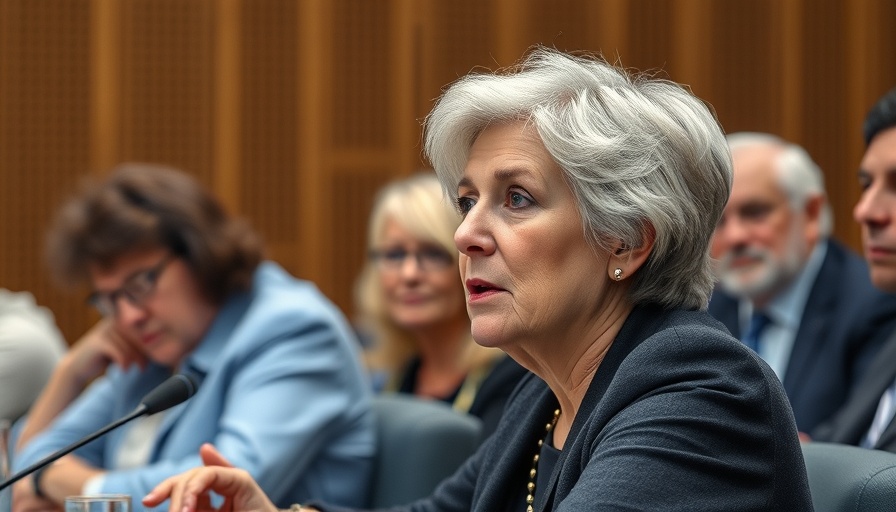
Seattle Council's Ethics Proposal: A Shift in Governance?
Seattle's political landscape has been stirred by a new proposal from Councilmember Cathy Moore, aiming to amend the ethics regulations that govern how councilmembers navigate conflicts of interest. Currently, the law mandates that if a councilmember faces a potential conflict of interest, they must recuse themselves from voting. Moore's proposition would instead allow these elected officials to disclose their conflicts while still participating in votes, raising eyebrows and drawing criticism from citizens who fear a potential dilution of ethical standards.
Understanding the Proposed Changes
According to Moore, the rationale behind her bill lies in the goal to foster greater representation for constituents. "We can't leave districts without a voice in important votes,” she stated, pointing to the potential adverse effects of a councilmember stepping back from discussions in an already complex political environment. The proposal mandates that councilmembers inform the public, including posting about their conflict and alerting the Seattle Ethics and Elections Commission, yet lacks the robust safeguards many community members want.
Community Concerns: Voices from Seattle
The introduction of this bill has not gone unnoticed by the Seattle community. Public comments have echoed calls for accountability and transparency, with over 50 individuals expressing their qualms during recent council meetings. Former executive director Alice Woldt articulated a shared perspective when she noted, “The current recusal rules have been in place for 45 years. So why now? What prompts this change?” Such skepticism hints at deeper concerns about the intentions behind modifying long-standing ethical norms.
Potential Implications for Seattle's Governance
Though Councilmember Moore believes that enabling broader participation will enhance local governance, others worry it may set a precedent that diminishes ethical standards. Current regulations were established to promote trust among constituents and ensure fair representation. If the proposal becomes law, it could materialize into a slippery slope where accountability is sidelined in the name of practicality.
Future Outlook: Will the Proposal Pass?
The fate of this proposal remains uncertain as it makes its way through the legislative process. Elected officials face a challenging task ahead, weighing the necessity of effective representation against ethical obligations to the public. Seattleites retain a vested interest in how their representatives will navigate this debate, given its potential ramifications.
Your Voice Matters
As this conversation unfolds, it's essential for residents of Seattle to remain engaged and informed. The ethics rules shaped by elected officials ultimately impact the heart of local governance. Attending City Council meetings, participating in public forums, or reaching out to your councilmember can help shape the future of our city's political climate.
The proposed changes to Seattle's ethics rules spark essential dialogues about accountability, representation, and the evolving dynamics of local governance. However, before the proposal can move ahead, it must navigate significant public scrutiny and legislative hurdles. What's most important right now is that the community stays involved, voices concerns, and advocates for a political framework that genuinely serves everyone.
 Add Row
Add Row  Add
Add 




Write A Comment